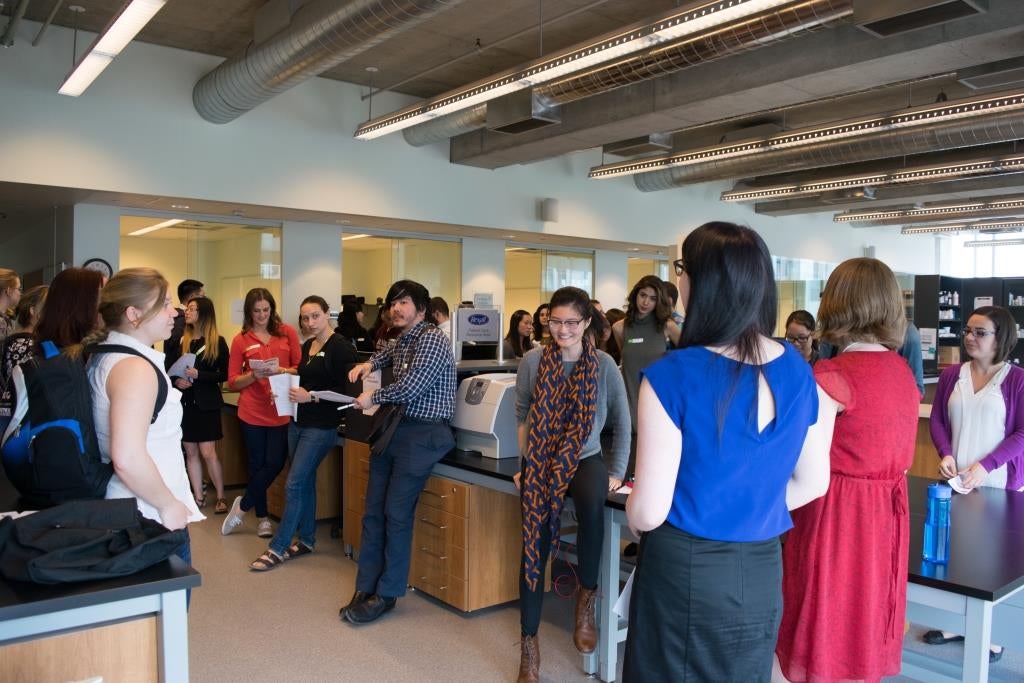The context in which physicians and pharmacists practice can differ dramatically, and ensuring consistent and quality care for the patient in each venue is essential. The key to that quality care often lies in interprofessional collaboration.

Students listening to opening remarks as HIPED 2016 gets underway
On May 19, University of Waterloo pharmacy students and McMaster University medicine students came together to practice exactly this type of collaboration. This is the second year McMaster and Waterloo have partnered to offer HIPED – Healthcare Interprofessional Education Day, and this year McMaster students attended not just from the Waterloo Regional Campus next door but also from Hamilton and Niagara campuses.
Local healthcare providers lead sessions
HIPED saw 150 medicine and pharmacy students collaborating to complete three workshops on vital aspects of pharmacist-physician collaboration: communication, prescribing, and patient interviewing.

Cynthia Richard and Robin Andrade leading prescribing workshop
The workshops were run by a combination of Waterloo and McMaster staff and faculty, as well as local healthcare providers from the nearby Center for Family Medicine, standardized patients, and even a Waterloo Pharmacist alumnus and practicing pharmacist.
Each session broke students into groups, encouraging them to teach their peers about what they do. A common theme across workshops was the importance of putting the patient at the center any interprofessional initiative: let the patient’s concerns direct an interview, regardless of profession. Let the patient’s unique history inform prescribing decisions, and let the patient’s verbal and non-verbal cues inform communication efforts.
Dave Edwards, Associate Dean of the School of Pharmacy, seconded the need for this patient-centered care:
As patient problems grow increasingly complex, the importance of interprofessional teams of health care providers becomes more evident. These teams need to communicate effectively in order to provide the care that patients need.
Communication: a skill in high demand
Imagine you’re sick. Your family doctor’s booked up so you go to a walk-in and get a prescription from the physician. You go to the pharmacy to fill your prescription, only to discovery that the medication could interact dangerously with your existing blood pressure medication. “Hold on”, the pharmacist says, “and let me check with the doctor.”
You’re sick and frustrated - why, you wonder, can’t these people get ahold of each other?

Medicine and pharmacy students discussing a patient scenario in the communication workshop.
Communication was a recurrent theme throughout the day, as seen in the closing remarks of the Regional Assistant Dean of the Waterloo Campus, Cathy Morris.
Morris told the students that:
You are the agents of change in a system that has much to change. These are not sweeping and drastic changes, but rather changes that can be achieved with the simple word.
Morris indicated that establishing reliable and open channels of communication and building strong working relationships across healthcare disciplines are two of the ways that healthcare providers of the future must change to better serve patients.
By encouraging interprofessional teamwork from an early stage, events like HIPED prepare students to make those positive changes.